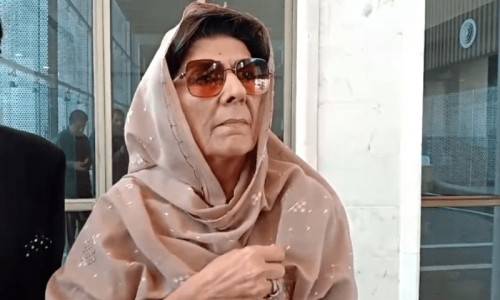KARACHI: Foreign Minister Bilawal Bhutto-Zardari has said that the country’s future is anything but certain unless political parties agree that the judges and generals must not take sides.
In a tweet on Sunday, Mr Bhutto-Zardari said the Charter of Democracy — signed in 2006 between former prime ministers Benazir Bhutto and Nawaz Sharif — “laid out a framework for political parties to abide by. Until and unless we all agree that the establishment and judiciary must remain impartial, and the Constitution must reign supreme, the country is doomed to suffer experiments and their aftermaths”.
According to the state-run APP news agency, the foreign minister on Sunday also declared May 14 — when the charter was signed 17 years ago — a historic day for Pakistan and democracy.
Mr Bhutto-Zardari, who also heads the PPP, insisted that the charter had enhanced the country’s prestige and strengthened democracy.
Foreign minister hails Charter of Democracy on its 17th anniversary; says it lays out framework for political parties to follow
He said the 18th constitutional amendment was a pact between the federation and all federating units and only parliament had the power to make the law and Constitution.
“It is the duty of all other institutions of the country to follow the laws passed by the parliament,” he said.
Mr Bhutto-Zardari said that due to the sacrifices of his mother, Benazir Bhutto, and party workers, the Constitution of 1973 was restored to its original form, which was a defeat of those who despised and hated democracy.
The PPP chairman said that due to his party’s struggle to restore democracy and security in the country, the graveyard of Garhi Khuda Bakhsh “was inhabited by martyrs from where the sun of democracy rises with the blood of martyrs”.
He said it was encouraging that members of the parliament and democratic political parties were united and they were on the same page today on the principle of an empowered parliament.
He said that undemocratic thinking had to be defeated by strictly and steadfastly adhering to the Charter of Democracy because the parliament was supreme and everyone had to submit to it.
The democracy charter was signed in 2006 between former prime minister Benazir Bhutto and PML-N supremo Nawaz Sharif. It aimed to enhance governance, democracy, human rights and judicial independence. It advocated for constitutional reforms, transparent elections, devolution of power, and national security.
The charter has fostered political dialogue, improved relations and influenced Pakistani politics, although not all points have been fully implemented. Nonetheless, it remains instrumental in shaping the country’s democratic course.
Published in Dawn, May 15th, 2023














































